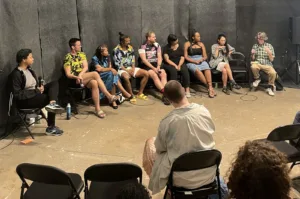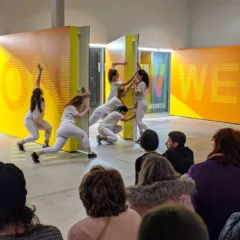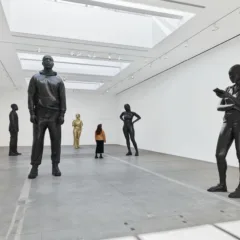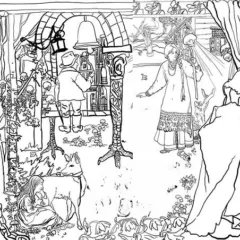In her solo show Face Tan/Night Swim, currently at Vox Populi, artist Abigail Lucien conjures what she calls a “post-tropical” habitat — working against the (mis)perceptions of her native Caribbean held by those living outside of it. A Haitian-American who grew up in Cap-Haitien, Haiti and Florida, Lucien makes work that reflects her multicultural immigrant experience through subtle and nuanced gestures. Face Tan/Night Swim consist of mix-media sculptures and ready-made objects arranged in an installation. These works are accompanied by a poetry-filled zine, which largely sets the tone of the show.
The windowless gallery is roughly divided in half by Half Full and Knee Deep (2018), a steel gate-like screen, which directs one’s navigation through the space. On the far side of this partition, a metal awning covered in transparent pink vinyl overhangs an oscillating fan to which a car air freshener has been attached. Visitors can walk under the awning to watch the vibrating freshener and even attempt to smell its “Caribbean Colada” scent. Aptly titled Second Wind (2018), the piece offers a humorously stripped-down experience of a tropical oasis; instead of drinking Piña Coladas on the breezy beach, viewers get a few gusts of recirculated air.
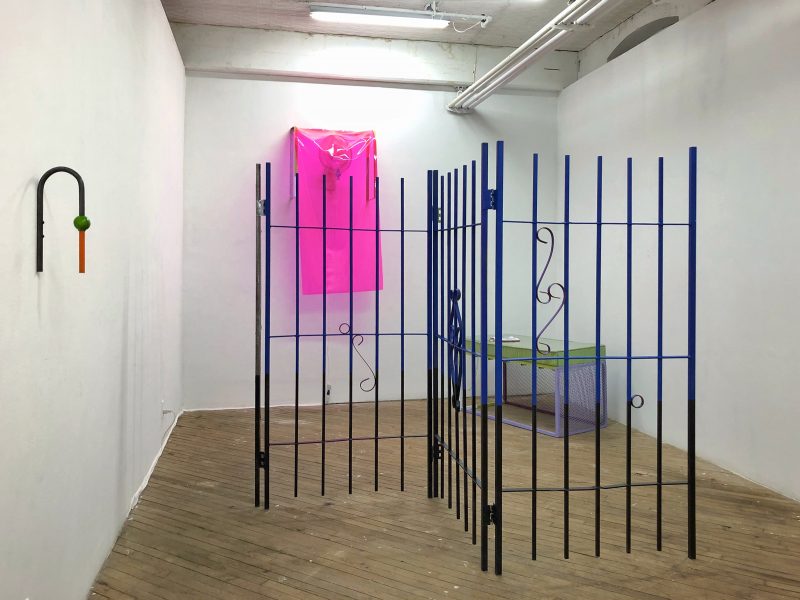
The key to understanding the show lies in its companion zine, which is chained and placed on top of Limehead (2018), a sculptural bench covered in blazing lime green satin and transparent vinyl. Flipping through black-and-white photocopied images of palm trees, Haitian cigarette packs, the artist’s own boarding pass, and some intermittent poems feels almost like peeking through someone’s travel diary. Lucien complicates this experience by inserting a copy of a travel advertisement bearing the image of two snorkelers sitting at an unidentified seashore under the suggestive tagline, “This Winter Could Be Your Wettest Ever.”
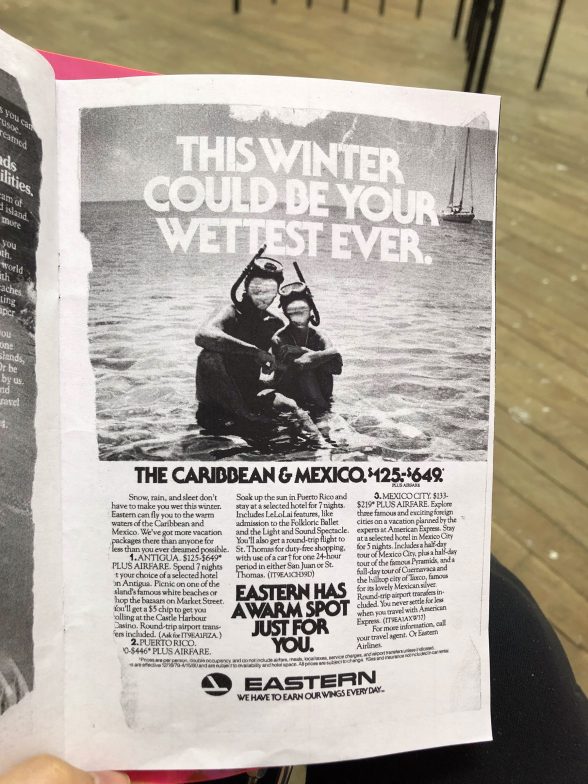
Found and ripped from a 1970s National Geographic by the artist herself, this advertisement (from which the zine borrows its title) typifies Western representations of the Caribbean islands. The region has often been exotified (“The endless islands with endless possibilities,” reads another ad on the Bahamas) in branding that promises the ultimate in leisure. By showing the virtually unchanged focus of these images over the past 50 years, Lucien impels viewers to consider the entangled narratives surrounding the Caribbean islands today.
Like many places in the Caribbean, Lucien’s native Haiti has a fraught relationship with the outside world. Tourism is a double-edged sword, both indispensable to the economy and threatening to local cultures and histories. And as the nation struggles to rebuild from a series of natural disasters (including hurricanes in 2008 and a 2010 earthquake that killed an estimated 300,000 people), international relief has proven insufficient or, even worse, deadly (with a 2016 cholera epidemic actually being introduced by U.N. peacekeepers). Earlier this year, Donald Trump further stigmatized Haiti as one of several “shithole countries” from which the United States should no longer accept migrants. That all human faces in Lucien’s zine, save for that of a single black server, have been intentionally effaced and replaced in photoshop with background is perhaps the artist’s way of staking out a new space for representation.
On the other side of the room, a low fence, titled Shin Guard (2018), circles a bunch of fake limes, or lime-shaped air fresheners responsible for the odd smell in the gallery. Nearby stands Confiance (2018) — another awning of orange vinyl which houses a three-minute video of fluctuating water on a flat screen set into the wall. Due to the shallowness of the space between the vinyl cover and the screen, viewers are forced to watch the footage close-up and in pixels, while listening to the jarring sound of a motor boat and churning water. The experience, as with the entire show, is neither familiar nor pleasant but willfully constructed. Objects are made from industrial materials, blare in artificial colors, and reek of chemical perfumes. They reference elements in nature—from the sun and wind to water and fruit— but with no attempt at realism. Ultimately though, Lucien’s tropical habitat comes across as more real than any tourist’s contrived projections.
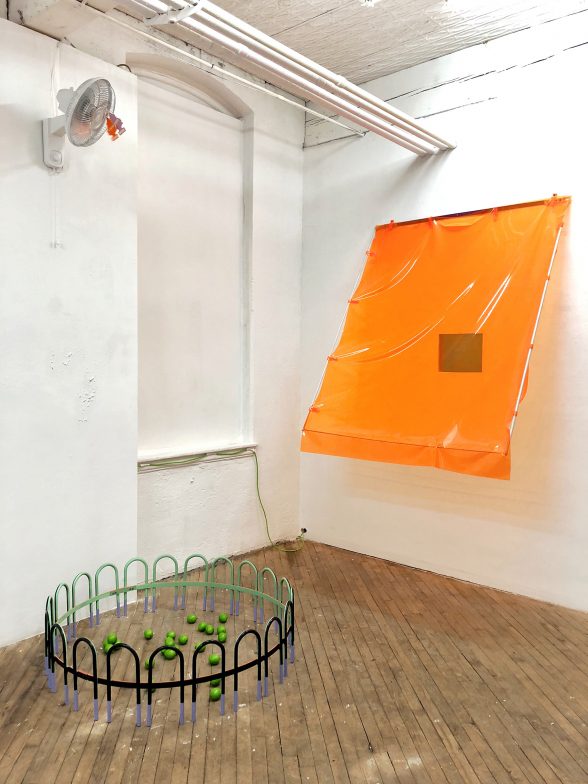
Face Tan/Night Swim runs through October 20 at Vox Populi, 319 N. 11th Street, Philadelphia, PA 19107. Gallery Hours Wednesday-Sunday, 12-6pm.


